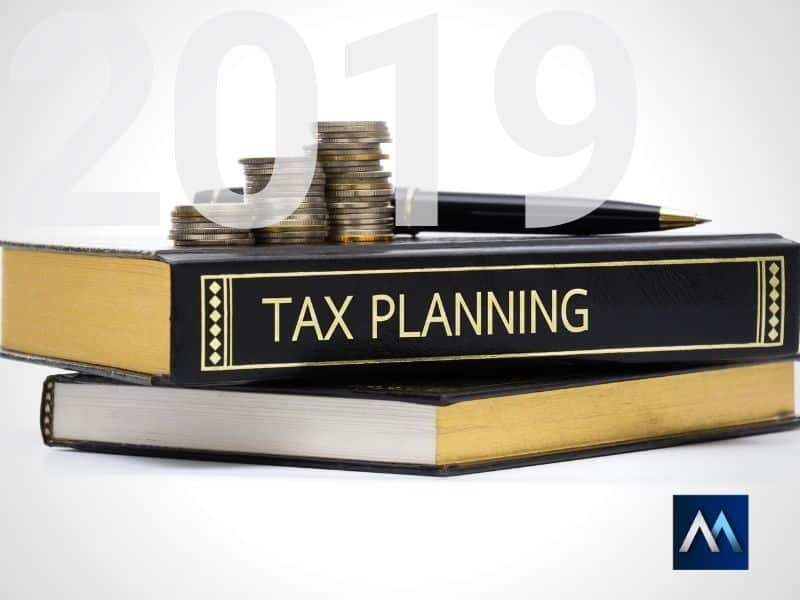Businesses and their managers can optimize their corporate business taxes using below simple and effective planning strategies in Canada:
Caution: Below post explores tax planning strategies for businesses in Canada without getting into depth. You must consult your corporate tax accountant or Personal income tax adviser before acting on any of them since there might be other factors affecting the tax outcome of each strategy.
Utilize manufacturing tax credits
Corporations involved in manufacturing and processing businesses may get certain tax incentives in the form of tax credits and accelerated capital cost allowance. Ontario has a tax credit for manufacturing and processing businesses details of which can be found here.
Such tax credits have certain conditions and limitations. A thorough assessment and review of your operations can help you utilize these benefits at the maximum.
Withdrawals from Owner managed Corporations
Owner-managers can withdraw from their corporations in the form of either a dividend or salary. Consider issuing a bonus from your corporation which can enable your corporation to reduce its taxable income and even defer your individual tax. Read about tax planning options for owner-managers here in more detail.
Family income-splitting
There are strict rules in place to split income with your family members from the corporation in order to get benefits from their (family members’) lower income tax brackets. These rules are known as TOSI rules and you can learn about them here in a quick read.
You can pay reasonable amounts to your spouse or children if they perform work for your business. While doing so, it is recommended to consult your corporate tax accountant or personal income tax provider to determine the applicability of TOSI rules.
Capital Gains Deduction for Qualified Small Business
There is a cumulative capital gains deduction limit available for qualified small business corporation shares in Canada. This limit is $866,912 starting January 01, 2019 and expected to increase over the years due to the indexing (for farm and fishing property, the limit is one million dollars). If you are selling such a property you can maximize your deduction limit by careful structuring of the transaction.
Loans to Shareholders from Corporations
When you borrow from your corporation these amounts are subject to certain rules. Generally, you must pay back these amounts to corporations within one year from the year-end of the corporation. If you do not pay back within this prescribed period, such an amount is included in your personal income tax returns as a taxable benefit for the year in which you actually received this loan amount from the corporation. When you pay back this amount to the corporation, you are entitled to a deduction in the year of repayment.
Depending on the circumstances, you may have to include a taxable benefit in your income equivalent to the difference between the CRA prescribed interest rate and the interest rate of the loan.
It is always better to review your Corporations’ balance sheet with your tax adviser as sometimes your bookkeeper may have misclassified certain accounting transactions by debiting Shareholders’ loan or current account.
Tax Deferral on Capital Gains– Reinvestment of Sales Proceeds in another small business
There is a tax deferral available for the capital gains if you invest the proceeds from the sales of shares of a small business in another small business, in full or in part. Certain conditions necessary to meet this tax deferral are as below:
- Proceeds must be invested in the “new” common shares of a small business corporation.
- The time period for re-investing the eligible proceeds is 120 days from the end of the year in which shares of an eligible small business corporation were sold
- The total value of assets of small business corporations and its associates (investee corporation) does not exceed 50 Million dollars.
Tax planning for Depreciable Assets
Capital cost allowance is a tax version of the depreciation of fixed assets. The timing of acquisition and disposal of fixed assets always results in tax consequences.
- If you acquire an asset at the end of the year, you will still be able to claim the Capital cost allowance for that year provided the asset was available for use.
- If at the time of disposal, your asset appreciates in the value, It will result in an additional income tax liability.
- If your asset is disposed of at loss, there might be a terminal loss available to you.
Always review your fixed assets, at least once a year, and plan acquisitions and disposals of assets accordingly. This is an area which small business owners tend to ignore frequently.
Non-Taxable Gifts to employees
You can give gift to your employees which are non-taxable benefits in the hands of your employees while still entitling you to a business deduction. There are rules surrounding gifts to employees especially monetary ones. For example, you can offer a non-taxable non-monetary gift to your employee once every 5 years.
Be Careful of Passive Income of Corporations
Passive income earned within a corporation is taxed at a very high rate (50%). Starting in 2019, there are new rules surrounding the corporations where the small business deduction is reduced $5 for every $1 earned in the passive income above $50,000. For example, if you earn $150,000 in passive income within a corporation, your small business deduction is reduced to $0.00 since $100,000 above the first $50,000 of passive income has resulted in a reduction of $500,000 of small business deduction ($100,000 x 5).
Tax planning strategies for corporations vary from business to business. Some of the tax planning strategies involve expert knowledge of tax laws and rules. We always recommend consulting a corporate tax accountant while preparing your corporate tax returns. Maroof HS CPA Professional Corporation provides both Corporate tax services and Personal tax services related to Canadian income tax. We also provide US tax services to Canadian businesses and individuals with US reporting and filing requirements.





